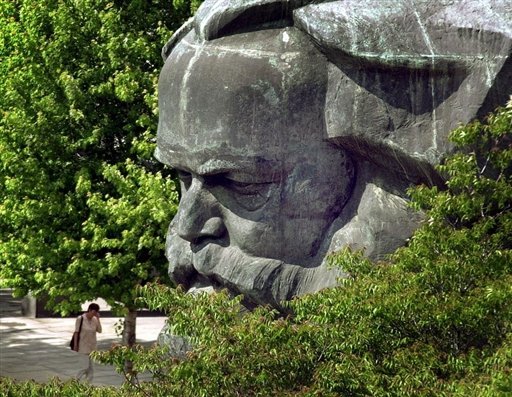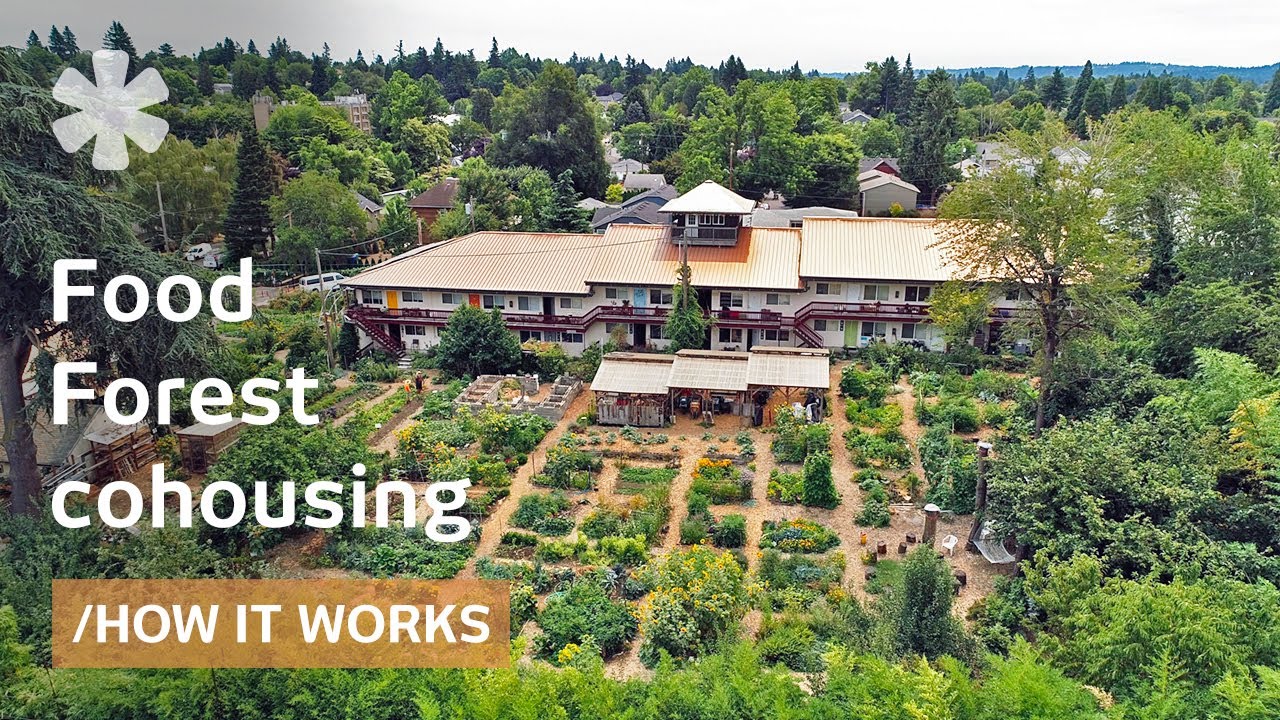Here, nearly everything is shared. There are two community electric cars - donated by the Erssons who no longer have a private car-, shared bicycles (and bike trailers), an extensive fruit orchard, berry and grape patches, and a considerable community garden space. Photovoltaics provide about two-thirds of the energy consumed by the complex. […] Rents here are lower than the Portland average because the Erssons want Kailash to be accessible to all income levels. There’s a 300-person waitlist, but Ole hopes others will follow their example.
“If you look at it from an economic perspective no business would want a complex landscape like this because it’s way too much maintenance, but what you have to do is turn the maintenance over to the residents, and then they do it: they get joy; it’s an antidepressant; it’s a way of creating food; it’s a way of creating community; so you have to do it in a certain way, but it’s definitely a lot more work than the typical grass and shrub landscape for sure.”



Absolutely. I think as MLs realizing the power and importance of the humble farmer is second to none. I have also participated in urban agriculture and I find it to wonderful as well. It’s amazing to see that humans don’t need that much to be happy, cooperative and fulfilled. I think consumerism really is against humanity because it trains us to want more and want better, but only products and aesthetic vapidity. What we really want more of, are healthier relationships, peace and challenge(whatever form that may take). Capital definitely over complicated life and the human experience.
On a further note on complexity in the form of product consumption. We’ve survived just fine for millions of years without Gucci, ExxonMobil, Apple and McDonald’s. It’s a western philosophy idea that complexity for its own sake is a sign of development. Maybe a remnant of the enlightenment. Simplicity can be as rigorous and complex as any system. For example the game “Go” simple game, simple rules. Nearly infinite possibilities. Whereas, Chess is much more complicated on its surface, but doesn’t have nearly as many combinations and outcomes as Go.
I believe we can use the power of simplicity as a guide to many solutions. The community in this video doesn’t need as much, and provides a lot for itself and it’s surroundings, thus reducing the complexity of logistics for their city. If there were 20 of these in one city, it could be imagined that these would reduce the need for complex infrastructure. And yet allow for resources to be diverted to solve more complex issues. Like exploring space, rejuvenating ecosystems, creating food security for the world, educating the world and curing diseases.
Tl;dr By simplifying the material needs of the individual(as shown in the video) we allow for more complexity to arise in the global human system